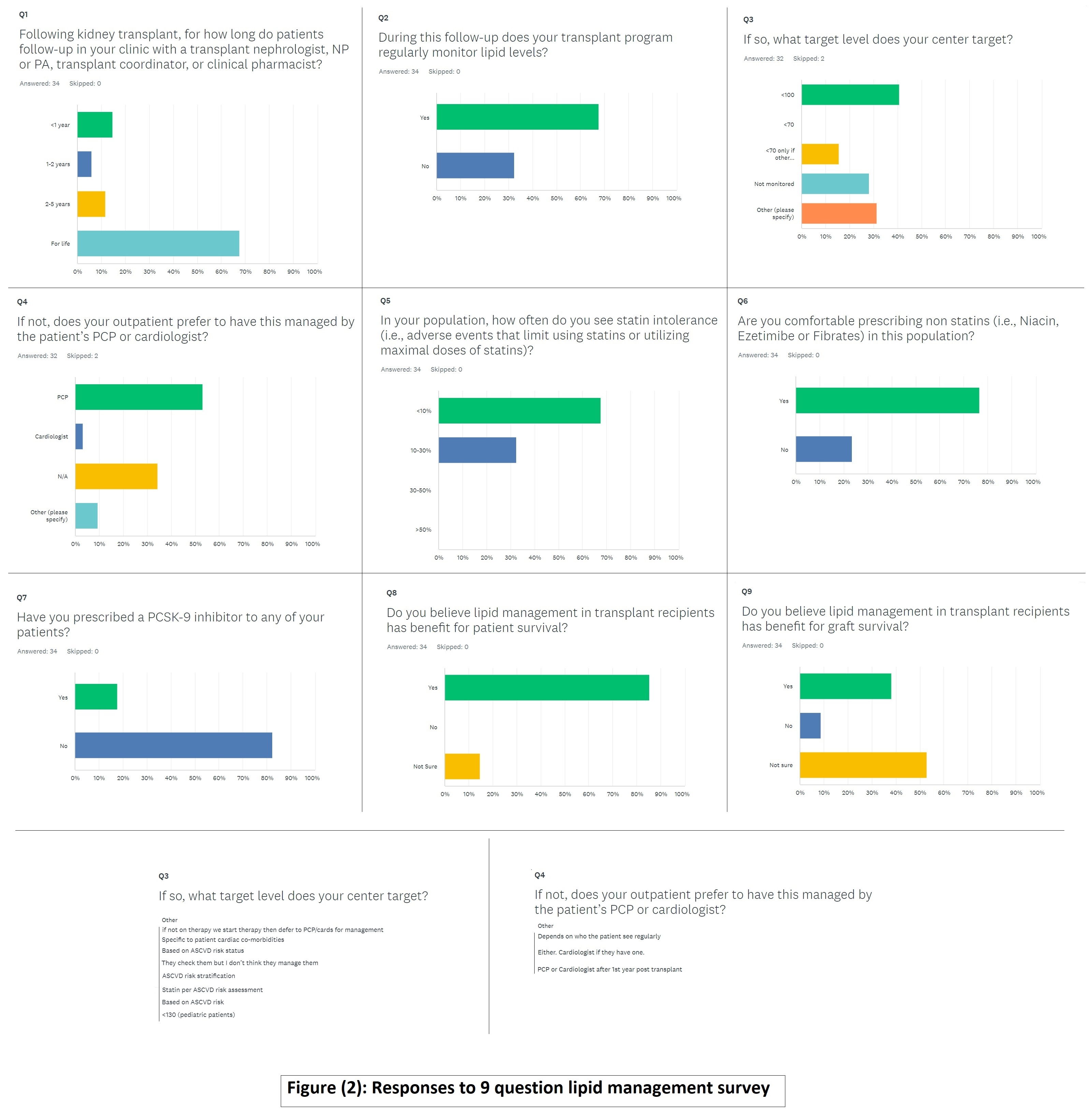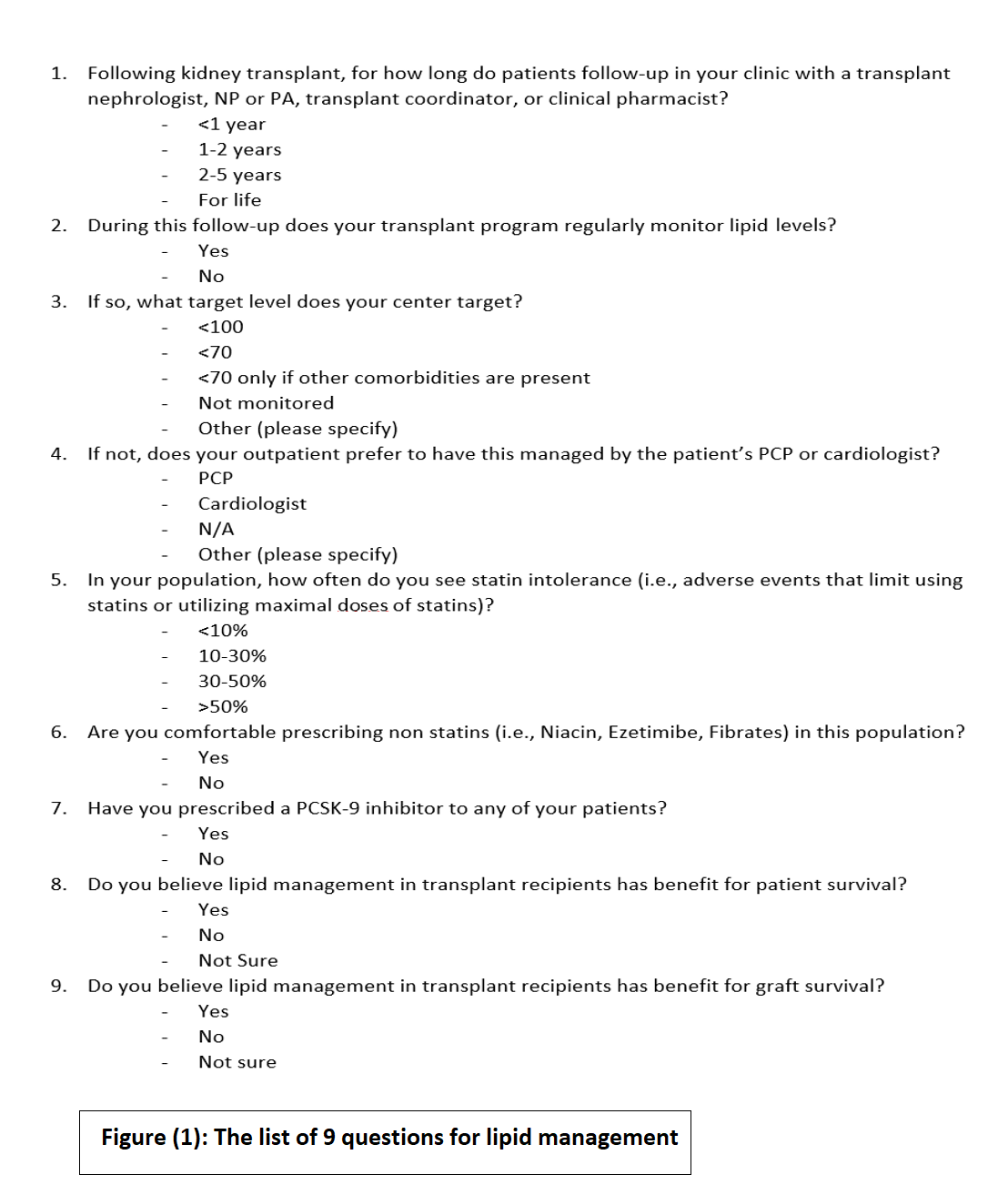A Nationwide, Multi-Center Survey of Lipid Management Strategies in Kidney Transplant Recipients
Renal division, Brigham and Women's Hospital, Boston, MA
Meeting: 2022 American Transplant Congress
Abstract number: 1667
Keywords: Kidney transplantation, Lipids
Topic: Clinical Science » Pharmacy » 30 - Non-Organ Specific: Clinical Pharmacy/Transplant Pharmacotherapy
Session Information
Session Time: 7:00pm-8:00pm
 Presentation Time: 7:00pm-8:00pm
Presentation Time: 7:00pm-8:00pm
Location: Hynes Halls C & D
*Purpose: KDIGO 2013 guidelines for the management of lipid transplant recommend the use of statins in all kidney transplant recipients (KTRs), but with weak evidence support. Due to a lack of established and clear guidelines, lipid management strategies are often varied according to institutions and can thus result in undertreated or untreated lipid levels. This hypothesis was supported in an assessment of lipid management in KTRs in our institution (results submitted in a separate abstract). Given this disparity, we wanted to understand how transplant centers from around the United States approached lipid management in KTRs.
*Methods: A 9 question survey focused on lipid management strategy was sent to providers/pharmacists from transplant centers across the country and anonymous responses were collected and analyzed. Figure (1) shows the list of survey questions.
*Results: We received anonymous responses from 34 transplant centers at the time of this submission and found disparities and a general lack of consensus with regards to regular lipid monitoring, target LDL-cholesterol levels, and ownership for lipid management in KTRs. While a clear majority of transplant providers believed lipid management to be beneficial for overall patient survival, most transplant centers were unsure if lipid management was beneficial for allograft survival. Figure (2) shows a detailed analysis of the responses.
*Conclusions: The disparities in survey responses indicate that there is no uniform lipid management strategy in transplant centers across the United States. This could be attributed to the lack of strong quality evidence of lipid management in KTRs. Some of the 2013 KDIGO guidelines were based on weak data and hence there was no universal strategy adopted for lipid management in KTRs. Based on the current situation, we require long-term studies to assess the benefits of lipid management on patient and graft survival in KTRs and the development of a clearer, more standardized approach to the management of lipids in this population.
To cite this abstract in AMA style:
Pandav J, Saranu R, Muhsin S, Solhjou Z, Choi JY, Gabardi S, Chandraker A. A Nationwide, Multi-Center Survey of Lipid Management Strategies in Kidney Transplant Recipients [abstract]. Am J Transplant. 2022; 22 (suppl 3). https://atcmeetingabstracts.com/abstract/a-nationwide-multi-center-survey-of-lipid-management-strategies-in-kidney-transplant-recipients/. Accessed February 9, 2026.« Back to 2022 American Transplant Congress


